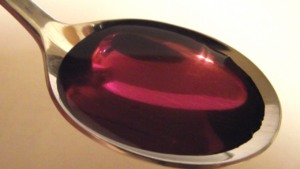A Dangerous Habit: An In-Depth Look at Cocaine Use
A few years ago, I was addicted to cocaine. Growing up, I saw it in movies, I heard some of my favorite artists sing about it, and honestly, I figured it was just something rich folks did in Vegas. It all started when I went to a party with a group of friends in college. We were drinking and laughing, you know, just having what I thought was harmless fun. Then a friend of one of my friends walked up to me and asked if I “wanted to do a line.” Instantly, I knew what he was talking about. Now, a few of my close friends assured me that it was fine. I mean, it was only one line, right? Well, one line led to years of cocaine use. It affected every aspect of my life. It caused me problems with my family, school, and work. I never would have thought I’d have a cocaine addiction. But there I was, in my mid-20s, turning to cocaine more than I turned on the TV. Eventually, I needed cocaine to simply get up in the morning. Waking up with a bloodstain on my pillowcase was common thanks to the damage to my nose. The cravings were gripping, and worst of all, I felt like I would never be able to return to a normal life. It just seemed too far away. But what I found was that recovery was possible. I realized that if I put my effort and mind toward sobriety, it was possible. Thankfully, I was able to find a treatment center to help me take my life back. I want you to know there’s hope for you, too. Remember, no matter what you’re feeling, you’re not alone. If you think you’re struggling with cocaine use or addiction, you can overcome it. The first step is realizing and admitting you need help. Now that I’ve shared my story, I want to share with you some of the information I was able to find when I was in the position you find yourself in right now. I also want you to know that your addiction does not define you. You are cared for and loved.
What Is Cocaine?
According to the U.S. National Library of Medicine (NLM), “Cocaine is a white powder. It can be snorted up the nose or mixed with water and injected with a needle. Cocaine can also be made into small white rocks, called crack. Crack is smoked in a small glass pipe.” Cocaine may cause you to feel energetic, excited, or happy. This is why so many people find themselves addicted. However, when you’re using cocaine, your mood can switch quickly. You may end up feeling anxious, nervous, or angry. After using cocaine, you might crash, which can lead to feeling sad or tired. On the streets, cocaine is often called:
- Bump
- Blow
- Coke
- Snow
- Crack
- 8-ball
- Powder
- Dust
- Big Flake
- Big C
- Coca
Cocaine is highly addictive. Even using the drug just one time can be dangerous, which is why staying away from it altogether is so crucial.
The Dangers of Cocaine Use
While a large number of Ohioans have been affected by the opioid problem in our state, according to the National Drug Intelligence Center, more than twice as many Ohioans enter treatment for cocaine addiction than heroin. Just like with other drugs, using cocaine can lead to needing more of the drug to get the desired effects. Cocaine increases the levels of dopamine (a feel-good chemical) in the brain. Cocaine prevents dopamine from being recycled, which causes a build-up of the chemical in the brain. According to the National Institutes of Health (NIH), “With regular use, tolerance may develop so that higher doses, more frequent use of cocaine, or both are needed to produce the same level of pleasure and relief from withdrawal experienced initially. At the same time, users can also develop sensitization, in which less cocaine is needed to produce anxiety, convulsions, or other toxic effects. Tolerance to cocaine reward and sensitization to cocaine toxicity can increase the risk of overdose in a regular user.” Typically, people who use cocaine do so in binges. Binges occur when someone continuously uses cocaine in higher and higher amounts. Cocaine binges can lead to restlessness, paranoia (unreasonable fear that someone might hurt you), panic attacks, and losing touch with reality. Regular cocaine use may also cause nosebleeds, loss of smell, nasal irritation, lung damage when smoked, problems swallowing, irregular heartbeat, heart attack, seizures, and stroke. If cocaine is snorted, the effects usually last anywhere from 15 to 30 minutes. If it’s smoked, they typically last anywhere from five to 10 minutes. Cocaine use may also lead to addiction. There are a few signs you are addicted to cocaine, including:
- The feeling you need cocaine regularly
- Needing more of the cocaine to get high
- Always making sure you have a supply of cocaine
- Money problems
- Problems with work or school
- Problems with family
- Wanting to stop using cocaine but being unable to
- Abandoning activities you enjoyed for cocaine
- Finding yourself in dangerous situations because of cocaine
- Health problems
- Having withdrawal symptoms
- Overdosing
Signs of Cocaine Overdose
If you believe you or someone you know overdosed on cocaine, call 911 immediately. It is possible to overdose on cocaine. In fact, it’s quite dangerous. An overdose occurs when you use too much of the drug and it causes negative side effects. According to the NIH, “Death from overdose can occur on the first use of cocaine or unexpectedly thereafter. Many people who use cocaine also drink alcohol at the same time, which is particularly risky and can lead to overdose. Others mix cocaine with heroin, another dangerous — and deadly — combination.” Signs of cocaine overdose include:
- Breathing problems
- Anxiety
- Agitation
- Irregular heartbeat
- Seizure
- Heart attack
- Stroke
- High blood pressure
- Hallucinations (seeing or hearing things that aren’t real)
Common Signs of Cocaine Abuse:
- Mood Swings: Frequent and extreme mood swings are often observed in individuals who are abusing cocaine. They may go from euphoria to irritability within a short period.
- Physical Changes: Cocaine abuse can lead to noticeable physical changes, such as dilated pupils, increased heart rate, and nosebleeds (often referred to as “nose candy”).
- Social Isolation: People struggling with cocaine abuse may withdraw from their social circles and become increasingly isolated.
- Financial Issues: Maintaining a cocaine habit can be expensive, leading to financial difficulties and even theft to support the addiction.
- Neglect of Responsibilities: Cocaine abuse often results in neglect of work, family, and personal responsibilities. Frequent absences and a decline in performance at work or school may occur.
- Health Problems: Chronic cocaine use can lead to a range of health problems, including heart issues, respiratory difficulties, and cognitive impairments.
Treating a cocaine overdose depends on what signs a person is showing. If a heart attack occurs, emergency responders will attempt to restore blood flow to the heart. In the event of a stroke, they will attempt to restore oxygen-rich blood to the brain. [inline_cta_three]
What Does Cocaine Withdrawal Look Like?
Withdrawal symptoms are a common reason why people struggle to leave drugs behind. These symptoms usually occur when you regularly use a drug and then stop. When it comes to cocaine, it may leave you with uncomfortable symptoms that can be difficult to manage. Symptoms can include:
- Fatigue
- Depression
- Slowed thinking
- Nightmares
- Insomnia (unable to sleep)
- Increased appetite
- Problems concentrating
- Mood swings
- Sweating
- Body chills
- Muscle aches
Cocaine withdrawal symptoms can last anywhere from seven to 10 days. You may start to feel the effects of withdrawal as soon as 90 minutes after your last dose.
You’re More Than Your Cocaine Addiction
In life, we all make mistakes. The important thing is how we react to them. If you’re battling cocaine use or addiction, getting sober is possible. It might not be easy, but your physical and mental health will thank you later. No one should have to address this issue alone. The good news is that you don’t have to. By seeking professional cocaine addiction treatment, you can learn the tactics and techniques that will help you leave cocaine behind forever. At some point, we all need someone to lend us a hand and guide us. Someone, somewhere is willing to walk with you, step by step, down the road to recovery. Many before you have successfully walked down that road, and others are fighting the same fight you are. Remember, you’re not alone. You are stronger than you think. You’ve come this far in life, and you deserve happiness and sobriety.
Call Vertava Health – Ohio Today
Each individual battling a cocaine addiction is unique, which is why their treatment should be as well. For those with an addiction to cocaine, inpatient rehab is typically recommended. By using evidence-based treatments such as cognitive behavioral therapy and dialectical behavior therapy, unhealthy habits and thoughts can be addressed and changed. Recreational activities, such as yoga and hiking, may also provide a healthy alternative to cocaine. No matter what, cocaine does not have to control your life. You can leave it behind. Here at The Bluffs, we understand your situation is unique, which is why we create treatment plans just for you. Our inpatient cocaine rehab program will address the symptoms of your addiction and daily-life contributors that may affect it. No one should ever have to face addiction alone. Whether it’s you or a loved one, we’re here to help every step of the way. Call (888) 481-7821 to learn more.
Frequently Asked Questions
Why do people use cocaine? Cocaine increases the levels of the feel-good chemical dopamine in the brain. Cocaine may cause you to feel energetic, excited, or happy, which is why so many people find themselves addicted. When you’re using cocaine, your mood can switch quickly. You may end up feeling anxious, nervous, or angry. Using cocaine can be dangerous. According to the NIH, “With regular use, tolerance may develop so that higher doses, more frequent use of cocaine, or both are needed to produce the same level of pleasure and relief from withdrawal experienced initially. At the same time, users can also develop sensitization, in which less cocaine is needed to produce anxiety, convulsions, or other toxic effects. Tolerance to cocaine reward and sensitization to cocaine toxicity can increase the risk of overdose in a regular user.” What is a cocaine binge? A cocaine binge occurs when someone continuously uses cocaine in higher and higher amounts. Cocaine binges can lead to restlessness, paranoia (unreasonable fear that someone might hurt you), panic attacks, and losing touch with reality. Regular cocaine use may also cause nosebleeds, nasal irritation, loss of smell, lung damage when smoked, problems swallowing, irregular heartbeat, heart attack, seizures, and stroke. Can you overdose on cocaine? Yes, it is possible to overdose on cocaine. Signs of cocaine overdose include:
- Breathing problems
- Anxiety
- Agitation
- Irregular heartbeat
- Seizure
- Heart attack
- Stroke
- High blood pressure
- Hallucinations (seeing or hearing things that aren’t real)
If someone is showing signs of a cocaine overdose, call 911 immediately. Cocaine becomes even more dangerous when it’s mixed with other substances, such as alcohol and heroin.







